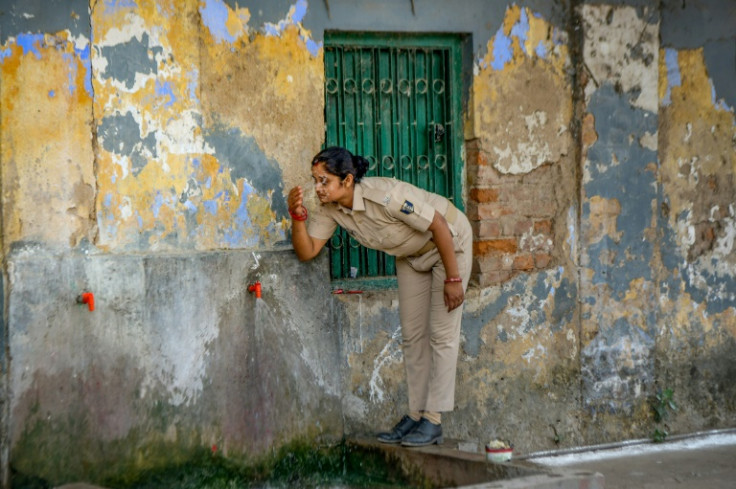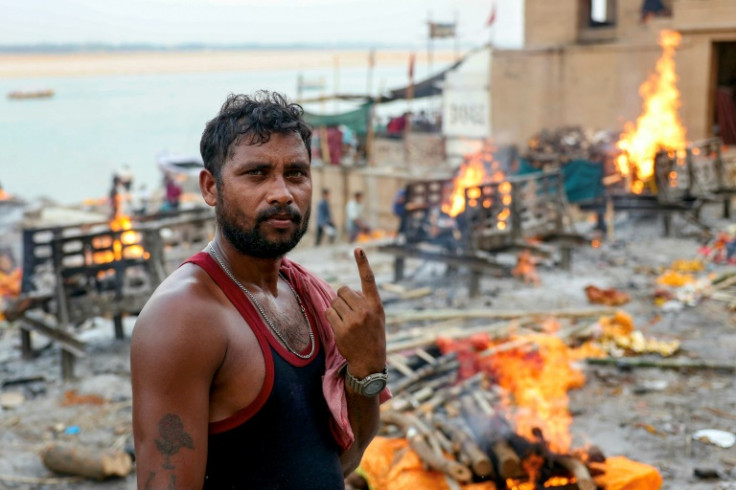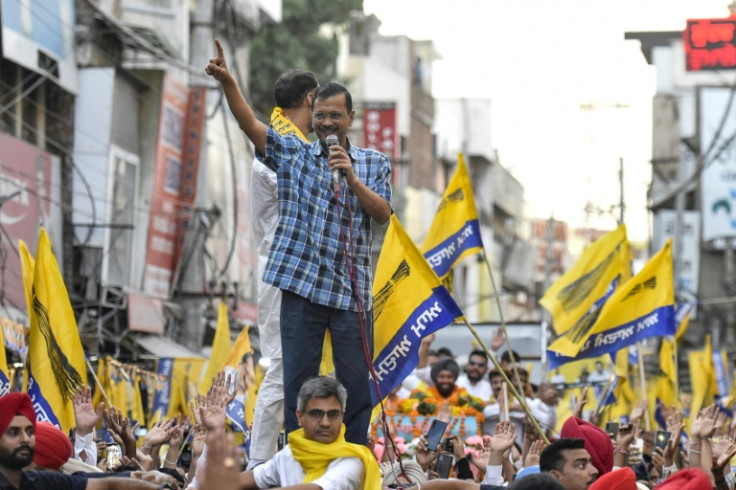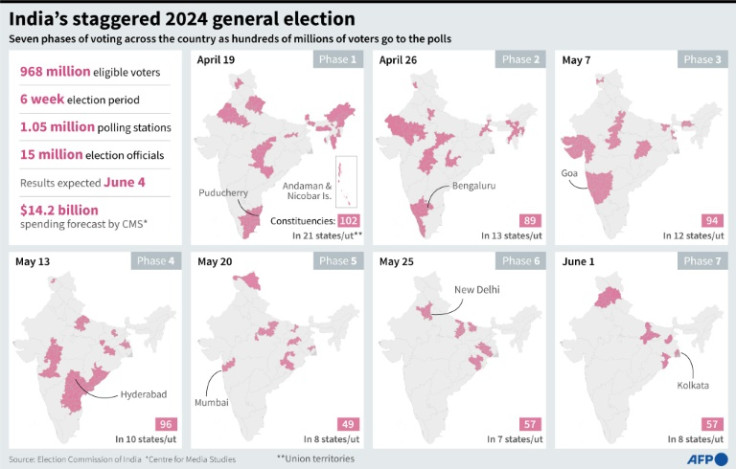Top Modi Opponent To Return To Jail After India Vote Ends

A top opponent of Indian Prime Minister Narendra Modi said he would return to jail Sunday, the end of the bail term issued to allow him to campaign in just-concluded national elections.
His expected return to prison comes as Modi looks set to win a third straight landslide election victory.
Arvind Kejriwal, chief minister of the capital Delhi and a key leader in an opposition alliance formed to compete against Modi, was detained in March over a long-running corruption probe.
Kejriwal is among several opposition leaders under criminal investigation, with colleagues describing his arrest the month before general elections began as a "political conspiracy" orchestrated by Modi's ruling Bharatiya Janata Party (BJP).
He will hand himself to prison authorities in Delhi on Sunday afternoon, he said.
"I came out for election campaign for 21 days... today I will surrender," Kejriwal wrote on social media.
Voting in the seventh and final staggered round of the six-week poll ended on Saturday, held in brutally hot conditions across swathes of the country.
At least 33 polling staff died from heatstroke in just the one state of Uttar Pradesh alone, where temperatures hit 46.9 degrees Celsius (116 Fahrenheit), top election officials said.
Exit polls showed Modi was well on track to triumph, and the Hindu-nationalist leader said he was confident that "the people of India have voted in record numbers" to re-elect his government.
Results will be announced on Tuesday.
India's top court granted Kejriwal bail last month, giving a fleeting boost to the opposition's quixotic campaign to oust Modi, but ordered him to return to custody once voting ended.
Kejriwal, 55, has been chief minister for nearly a decade and first came to office as a staunch anti-corruption crusader.
Kejriwal's government was accused of corruption when it implemented a policy to liberalise the sale of liquor in 2021 and give up a lucrative government stake in the sector.
The policy was withdrawn the following year, but the resulting probe into the alleged corrupt allocation of licences has since led to the jailing of two top Kejriwal allies.
Before prison, Kejriwal said he would visit a memorial to Mahatma Gandhi, pray at a Hindu temple and "meet all the workers" and leaders at his party headquarters.
"All of you take care of yourselves," Kejriwal added.
"I will take care of you all in jail. If you are happy, then your Kejriwal will also be happy in jail."
Rallies in support of Kejriwal, who has consistently denied wrongdoing and refused to relinquish his post after his arrest, were held in numerous other big cities around India after he was taken into custody in March.
He was greeted by more than 1,000 exuberant supporters when he walked out of jail in May, and promised to fight to unseat Modi "with all of my might".
"We have to save this country from dictatorship," he told the crowd, before devoting his three-week respite from jail to barnstorming campaign appearances urging supporters to the polls.
Modi's political opponents and international rights groups have long sounded the alarm on India's shrinking democratic space.
US think tank Freedom House said this year that the BJP had "increasingly used government institutions to target political opponents".
Rahul Gandhi, the most prominent member of the opposition Congress party and scion of a dynasty that dominated Indian politics for decades, was convicted of criminal libel last year after a complaint by a member of Modi's party.
His two-year prison sentence saw him disqualified from parliament until the verdict was suspended by a higher court, and raised concerns over democratic norms in the world's most populous country.
Hemant Soren, the former chief minister of the eastern state of Jharkhand, was also arrested in February in a separate corruption probe.
Kejriwal, Gandhi and Soren are all members of an opposition alliance composed of more than two dozen parties that jointly contested India's election.
But even without the criminal investigations targeting its most prominent leaders, the bloc struggled to make inroads against Modi.




© Copyright AFP 2024. All rights reserved.





















